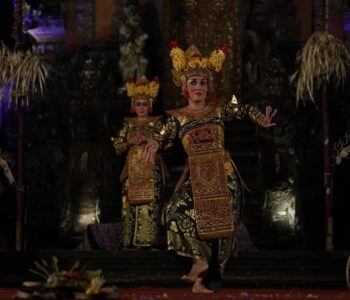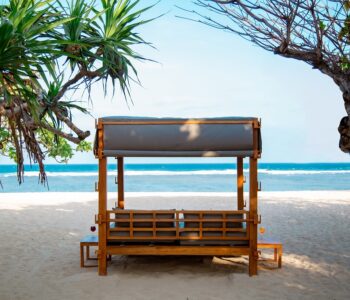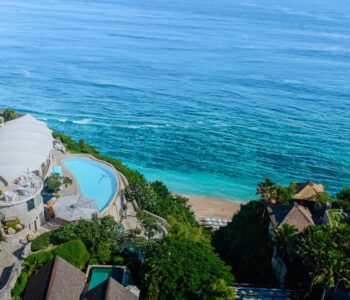Indonesia’s third largest province, North Sumatra is where Toba, Earth’s biggest volcanic caldera, formed around 1.3 million years ago. Incredibly diverse and still relatively untouched by tourism, it is a place with awe-inspiring wonders that one must visit at some point in their lives. We put together a curated list of three natural attractions in North Sumatra that will reward the traveller with the best experiences.
Orangutan Conservation at Bukit Lawang
Situated on the edge of Gunung Leuser National Park, Bukit Lawang is a popular destination for both adrenaline seekers and those who like to chill and lie back in a hammock. Outdoor adventure activities include river rafting, trekking in the jungle and mountain biking.
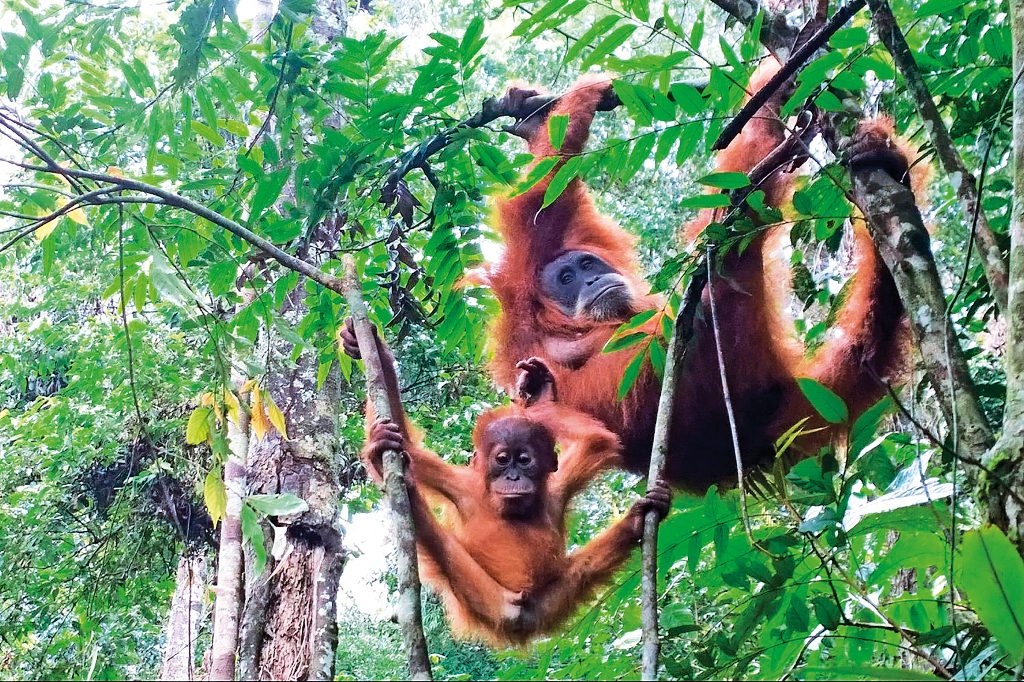
Among the many animal preservation programmes in North Sumatra is the Orangutan Conservation at Bukit Lawang. Situated around 90-km northwest of Medan along the Bohorok River, it is known for being the largest animal sanctuary of Sumatran orangutans. A Swiss organisation established the orangutan rehabilitation centre with the intention to preserve the decreasing population (due to illegal poaching, trading, and deforestation). The programme also rehabilitates the great apes released from captivity. Here, visitors can see wild and semi-wild orangutans also have the main access to enter the national park’s tropical rainforest area.
Orangutan, the largest arboreal mammal on the Earth, is indigenous to Southeast Asia. Unfortunately, their existence is, according to the International Union for Conservation of Nature, nearly extinct. Reports say the population is spread out to only two places, Sumatra and Borneo.
Even in Sumatra, they are considered critically endangered as there are only 6,600 left, in the provinces of Aceh and North Sumatra. Bukit Lawang is widely known for the Sumatran Orangutan called Pongo Abelii – a smaller group than their Bornean relatives. Oil palm plantations, illegal logging and pet trade have been blamed for their declining population.
Gunung Leuser National Park is one of the most bio-diverse rainforests in the world and has been the centre for Sumatran Orangutan preservation and conservation for many years. Based on research, there is over 96.5 percent of the apes’ genetic DNA spread out in the national park area. Under a serious wildlife preservation programme, there are some eco-tourism platforms that provide eco-travel jungle trekking tours which make for a memorable experience, watching these creatures in their natural habitat. Visitors are not allowed to enter the rainforest nor have direct contact with them. The tours ensure that they are seen from a reasonable distance and only with a registered and well-trained guide.
Conservationists such as the Sumatran Orangutan Society (SOS) and the Orangutan Information Center (OIC) have published a guide providing a comprehensive introduction to Gunung Leuser National Park and the extreme threat to the fragile ecosystems towards flora and fauna.
King Kong’s Island and the Mursala Waterfall, Sibolga
Thanks to the 2005 film by Peter Jackson, Sibolga in the west of the province is well-regarded for its lush subtropical forests. In addition to walking among the trees, one can swim nearby around the waterfalls and go snorkeling in the warm, sparkling waters of the Indian Ocean. One can also wade off-shore to the beautiful reefs filled with sea life such as crown-of-thorns starfish and anemone fish.
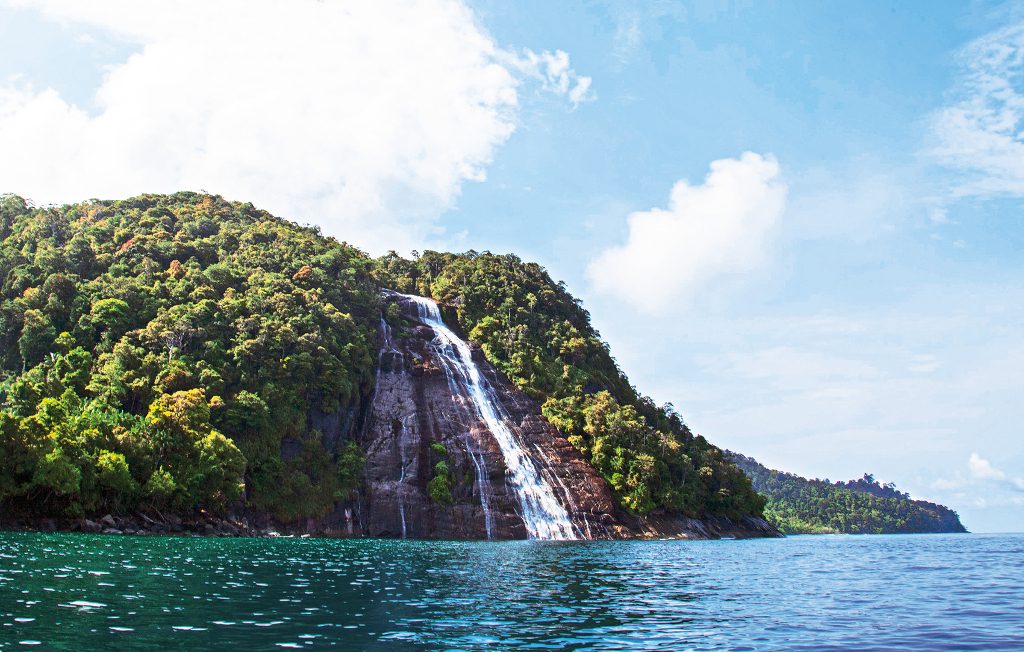
King Kong’s Island has enough natural points of interest to explore for a lifetime. Be enchanted by the beautiful, magnificent waterfalls, all hidden way off the beaten track. Then lie atop the cliff just at the edge of the Sibolga Peninsula. Accessible via speedboat, one can explore the beach and the waterfalls from Pandan Sibolga – King Kong’s Island – Putri Island – and back again to Pandan Sibolga within a couple of hours. Another option is to rent an ordinary boat in Pandan Sibolga, where one can just lie back and enjoy the six-hour sailing trip. Although King Kong’s Island has earned its fame through the movie, the island is perfect for travellers seeking effortless rejuvenation and peace of mind.
Elephant Sanctuary at Tangkahan
Take another step further at the eco-friendly tourism Elephant Sanctuary at Tangkahan. Situated in the Langkat District of North Sumatra, this is a place where you can have a peaceful jungle retreat in the secluded paradise on the edge of Gunung Leuser National Park. In fact, this place has a lot more to offer than just a tranquility of dense rainforest, but it is where you can actually immerse yourself in the heart of the Gunung Leuser region – a wild, tangled mass of vegetation, a very thick canopy of tall trees and fresh air supply from one of the Earth’s largest contiguous tropical rainforest.

Decades ago, the local community took action against destructive illegal logging and hunting practices and focused on the protection and conservation of the forest, in an effort to protect the environment and to care for the ecosystem of the region. An area of a functional, sustainable ecotourism destination was built in 2001, together with the establishment of Tangkahan Tourist Institute – as known as Lembaga Pariwisata Tangkahan (LPT).
Visiting Tangkahan means stepping out of the comfort zone from city life to a more traditional, ‘jungle-like’ existence involving trekking near the Kualsa Buluh river, riding elephants, wild river rafting and of course exploring the culture and lifestyle of the Karo Batak people. A programme named Walking with Elephants – or Angon Gajah in Indonesia — is a day in the life with (adult) Sumatran elephants where one can learn about their behavior and routine.
Elephant riding and washing are believed to be one of the most popular, educational programmes the Tangkahan has offered so far. The ride takes around three hours, giving visitors exclusive experiences in exploring the river’s national park, walking alongside the elephants and their natural jungle environment, seeing the massive vegetation of the area and washing the elephants in the end. Although the programme has been criticised, the Tangkahan Tourism Institute promises that it does not engage in animal exploitation and does not damage the animals’ natural habitat.
Visit www.sumatra-ecotravel.com or www.sumatraparadise.com for more information about the Tangkahan Eco-tourism Trip



